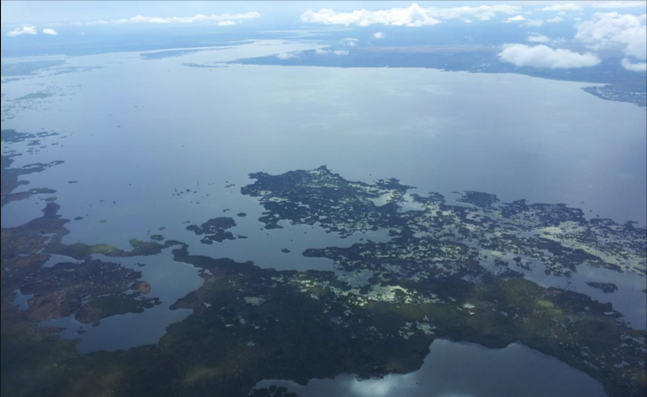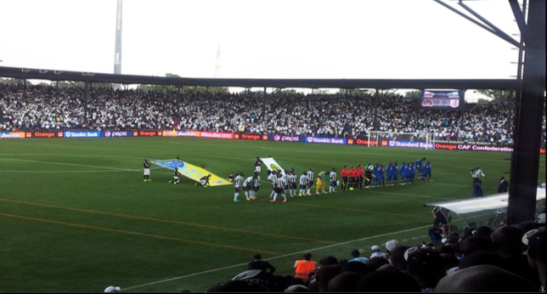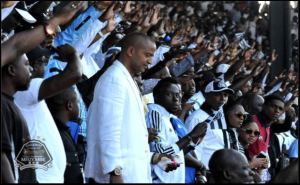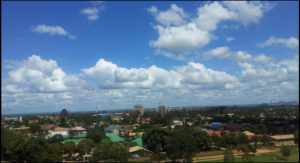Flying over the Democratic Republic of Congo’s Katanga Province, one cannot help but marvel at the beautiful scenery from the dense forests on plains and occasional hills, with meandering rivers and scattered lakes. To add onto this geographical beauty, the country’s sub-soil is overflowing with natural resources – from minerals to oil and natural gas – a phenomenon many have called a ‘geological scandal’. This phrase reflects the general perception of many people both inside and outside the country – always seeing the Congo in a negative light. While its bountiful natural resources are seen as a scandal rather than a potential for greater blessings, the Congo’s history has often wrongly been summed up by terms bearing a similar sense of negativity – instability, conflict, violence, poverty, incapacity – in academic circles, journalistic discourse and any other conversation about the African continent, in the very few instances where it is mentioned. The Congo is mostly, if not solely, portrayed as a warzone.
Scholars like Jeffrey Herbst have persistently argued that Congo does not exist. Like him, others, including scholars and practitioners, have equally found it difficult to come to terms with the fact that the time for a single story of the Congo and the African continent as a whole, is long overdue. This homogenization and monolithic analysis of events and histories robs the Congolese of their social and political agency in this process of state building.
In the spirit of highlighting other stories from Congo; stories that would take the men and women of the Congo from the margins to the centre of their own history, I opted to do my MSc. dissertation on the ‘contemporary articulation of Katangese (from Katanga) identity’ within the changing landscape of Congolese politics. This saw me go for fieldwork in Lubumbashi, the administrative capital of Katanga Province, for a period of one month. An experience that was facilitated by the Max Weidenfeld travel grant. Through interviews and discussions, I learnt a lot from participants, who ranged from street vendors to high ranking political officials. Katanga’s contemporary social, economic and political identity is mainly that of a people who take pride in themselves and strive to create a positive identity, one detached from the negative image broadcast of them in the past. Though my mission in Katanga was solely to collect primary data for my dissertation, my experience went beyond this and I chose to focus the present report on one of the biggest ‘discoveries’ made. Despite being a socio-cultural ‘discovery’, it was an eye opener into the networks and changing power dynamics in the politico- economic organization of Katanga.
i. For the love of the game,
The Congo not only enjoys a rich musical heritage but also a praiseworthy record in sports, particularly football, recently earning the third position in the continent, at the last Africa Cup of Nations tournament. On the latter, the city of Lubumbashi boasts of a local football club that has acquired international repute. The Tout Puissant Mazembe (French for Almighty Mazembe, commonly referred to as TP Mazembe) was the first club outside Europe or South America to reach the final of the FIFA Club World Cup in 2010. Prior to this achievement, TP Mazembe had won the African club championships – being the first team to successfully defend their title – and has continued to be a strong competitor in the continent’s football tournaments, attracting players from many different African countries.
TP Mazembe enjoys a wide fan base both in the province of Katanga and across the country. Thousands fill up its stadium during home matches and the supporters of the opposing team are often not more than a handful. The streets of Lubumbashi turn to black and white, the club’s official colours; from those donning the jersey, carrying its flag, having their faces painted black and white, to drivers honking rhythmically, in harmony with tunes from a brass band playing the club’s anthem and other victory songs. Crowds pour into the home stadium from all corners of the city, often up to three hours before kick-off. The stadium, nick-named The Temple, is an architectural jewel in the country and the region. Its most remarkable function, though, is as an entertainment arena; music, dance and football all take place simultaneously as supporters cheer their team to victory. Since moving to the stadium in 2011, the team has never lost a home match. Other strong teams on the continent have all bowed in front of thousands of Congolese ‘worshippers’ at the TP Mazembe temple.
TP Mazembe (in black and white) in their home stadium, before kick-off against Mali’s Stade Malien club
ii. the Money,
TP Mazembe’s success is attributed to the commitment and dedication of its President, a certain Moïse Katumbi Chapwe. A business tycoon, Katumbi took over the club’s leadership in 1997 and vowed to revive its lost glory. He invested a lot of money in players, raising the value of Congolese footballers when he made a record deal in the country by signing its world-famous striker, Trésor Mputu in 2002. Katumbi, an avid football fan, spares no resources in supporting the club; his own company – the Mining Company of Katanga, MCK – is its official sponsor. Besides its ultra-modern stadium, the club is the first in the continent to own a fleet of aircraft – two private jets.
The club also enjoys the support of other mining companies in this mineral-rich province thanks to its President. Each of the big companies has a private lounge at the stadium and contribute significantly to its budget.
iii. and the Power.
In addition to being President of TP Mazembe, Katumbi is also Governor of Katanga Province and heads its Provincial Government. His popularity during the gubernatorial election campaigns is attributed to the popularity of his football team as well as his philanthropic actions in Lubumbashi, where he distributed different material gifts to individuals, institutions and organizations.
TP Mazembe has since followed in the same spirit. In 2013, the team donated the full prize money won at the 2013 edition of the Africa Confederations Cup tournament, to the victims of conflict in Nord Kivu Province in Eastern Congo.
In his position as Governor, Katumbi enjoys a close relationship with regional and international leaders in their different capacities – diplomats, heads of international organizations and fellow governors in neighbouring countries, who are always delighted to attend TP Mazembe home matches with the Governor where politics, business and football are often discussed. With this overlap between its President’s club and governmental responsibilities, Mazembe has put football at the centre of Katangese politics and business, creating a complex model of leadership. During official ceremonies and political gatherings, some people call him President and others Governor and he often uses football rhetoric to deliver messages.
Hence, besides bringing people together to celebrate that which makes their Province shine, TP Mazembe, through the multi-dimensional personality of its President, has created a new model of leadership. Katumbi’s leadership style combining football with business and politics, has been exported to other Provinces. A model that scholars could examine in order to better understand the intertwined networks and dynamics of political, economic and cultural expression in a country as diverse as Congo, rather than give a monolithic view of the different events it has and is still experiencing.
For the province, TP Mazembe is the Pride of Katanga; for the country is considered he pride of Congo and for the continent, it is inarguably the pride of African football.
Fans at the TP Mazembe stadium. In plain white is Moïse Katumbi.
Despite the short duration of my trip, the knowledge acquired and the acquaintances made will go a long way in enriching my academic, social and professional life. Besides contributing significantly to my MSc. dissertation, and in addition to the peek into the Katangese social, economic and political organization through football, the trip to Katanga was an eye-opener to me as it revealed the different ways by which people are trying to navigate through difficult times and turning these into positive narratives. The resilience of the people I met, coupled with their jovial nature, was a clear indication of hope for a much better future. This has reinforced my desire to join hands with these optimistic people and forge on towards brighter days.
A view of Lubumbashi from the University of Lubumbashi administrative building.
Isaac Mpyana (MSc African Studies), Louis Dreyfus-Weidenfeld Scholar






